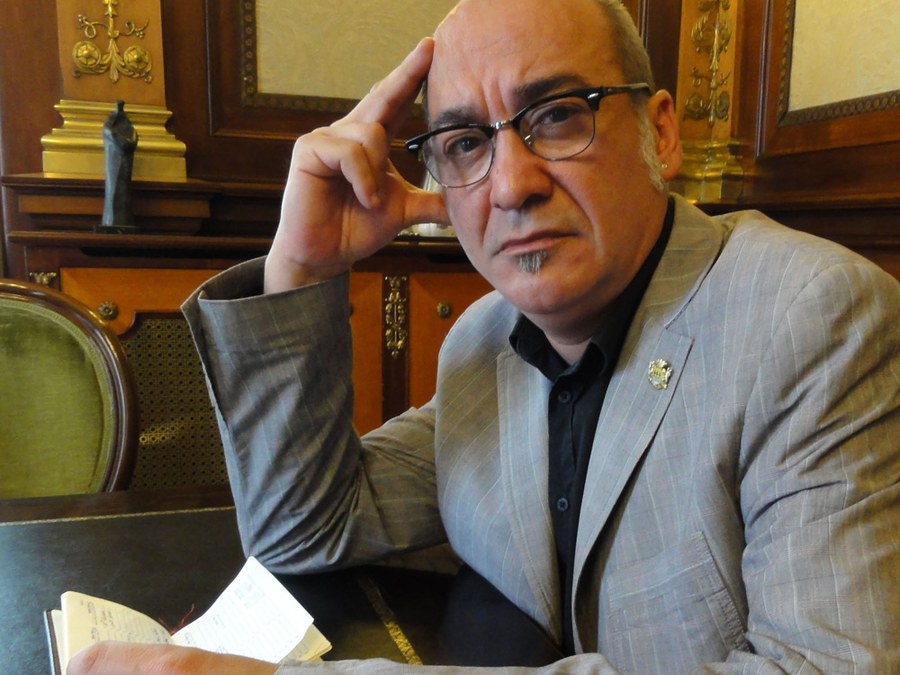“In Gipuzkoa the way out of the crisis is through, among other things, the cooperative movement”

We are facing a deep crisis that even some classify as a problem of our economic model. How does Martín Garitano qualify the current socioeconomic situation in Gipuzkoa?
We must start by noting that we are at the end of a model more based on speculation, housing and cement than on the productive economy. Some people had already been denouncing this as the wrong path a while back; that it was a dead end street, and now we can all see they were right. With such dramatic results for everyone to see.
This said, we must add that the socio-economic situation in Gipuzkoa, while serious and worrying, is not chaotic. This isn’t a consolation, but we are better than others in surrounding area.
Gipuzkoa´s company fabric, with a strong push to international markets, has resisted the horrors of a systematic crisis that has brought down the neo-liberal thesis that has reigned up to now in our economy like a religion. We have a highly qualified working class, dynamic executives and a social fabric that is acting as a mattress for the sectors most hardly hit by the crisis.
One of the strengths of our land has been our industrial fabric, and Gipuzkoa also has traditionally been a entrepreneurial society. Do you think we continue being it? What is being done by the government to foment these aspects?
Gipuzkoa has been and is a land of entrepreneurs. It’s not by chance that the cooperatives in Mondragon are a referent around the world. But of course everything can be improved upon, but we have a fabric of PYMES and cooperatives that, together with leading large companies, set an example of good work, innovation and development, that the government must support for a sustainable development, social advancement and balance for the land.
In Guipuzcoa´s strong industrial fabric, Mondragon´s cooperatives have had a lot to do with it. How do you as Gipuzkoa´s Regional Delegate see the cooperative movement?
We have a highly qualifi ed working class, dynamic executives and a social fabric that is acting as a mattress for the sectors most hardly hit by the crisis
The cooperative movement that is rooted in Gipuzkoa is a key to understanding the Basque situation in the 21st century. It has a lot to do with our society’s characteristic, with the auzolan [cooperative work] culture. The fundamentals of cooperativism, co-responsibility, balanced distribution of work and benefits, democracy, solidarity… these are key elements to affront situations like we are living now.
We have to be conscious that, in order to guarantee the prevailing of a more social, just, and thus more democratic Euskal Herria we have to all get out of the hole together, without leaving anybody behind. And this philosophy rings true to the cooperatives.
The crisis is bringing out some threats and also many opportunities. Do you think that Gipuzkoa´s society is prepared to tackle the challenges it faces?
If something characterizes Gipuzkoa´s society, it’s its capacity to confront adversity, like what Ignacio de Loyola said, the decision to mutate in times of desolation. Today nothing is like yesterday, and nothing will be the the same by tomorrow. That’s why the innovative desire that has characterized Gipuzkoa´s society will be determinant in confronting the way out of this crisis. We have to train more, invest in education, and with solidarity with the most affected by the crisis, search for new horizons to place our products. Now is the time to understand the weaknesses in the model that has dragged us to the bottom of the pit and choose the solutions that, necessarily go on to a more social model, less focused on the search for extreme riches and above all, equal distribution.
And to conclude, do you know much about the ULMA Group? Do you have a message to the collective’s partners and employees for these complicated times we’re in?
I know about ULMA –I’m from Bergara and come from a family with deep roots in the cooperative movement- and I know some workers at ULMA. I have good friends there. If I had to send them a message it would be of encouragement and hope. Nobody is trying to hide the difficulty we’re going through right now. The situation might get harder, even more so because nobody dares to put a date to the end of the economic crisis caused by the tyranny of what they euphemistically call “markets” but is really nothing but speculators robbing from one another.
I’m convinced that we will see the light again. And in Gipuzkoa, the light will come at the hands of the cooperative movement that, without a doubt, must correct some of its tics of the past and go deeper in its sense of real and social economic production. And ULMA will be there.




